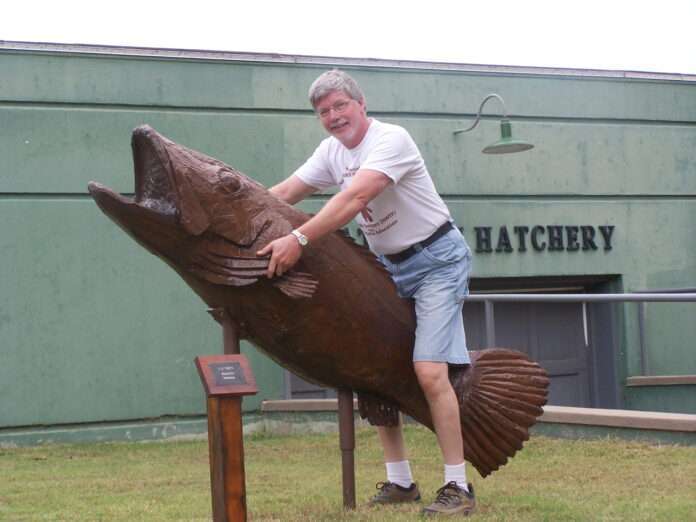A few years ago, a lady living just across from the park here in Inman called us about an owl that had barricaded itself behind a planter on her patio. We caught what appeared then to be a young great horned owl, named it Ozzy and kept it in a box in the laundry room overnight. The next morning Joyce took it to the Hutchinson Zoo which has an excellent wildlife rehabilitation program. The lady there was amazed at what she saw. She said they are deluged each spring with young wildlife, most of which are injured, and many too badly to survive. But she took one look at Ozzy and told Joyce “You take this owl back immediately and turn it loose in the park near where it was found.” She said it was possibly the healthiest specimen they had ever gotten, and that its parents would find it and make sure it survived. After chasing Ozzy around the park, trying to get him to stay near the trees and out of sight, we left him there and sure enough, he disappeared on his own just as she said.
I tell you this story to reiterate that it is indeed the season when new life is born into the wild, and often some of those babies are found by humans. We humans have an innate nurturing spirit within us that makes us want to capture and “help” young wildlife we find. In most cases we are not helping at all, as those babies are just fine and will be found by their mothers as soon as we leave. In fact, in some cases their mothers may even be watching. Taking a young animal from the wild actually decreases its chance of survival exponentially. It is also illegal to possess wildlife without the special permits and training like the people have that operate the Hutchinson Zoo rehab program.
Some years back for a story I was doing at the time, I called Bob Mathews, then chief of information and education for KDWP to get the Wildlife and Parks official stand on this kind of situation. Bob says he “knows that people have an understandable compassion for animals they see as being in need of help, but the biggest favor we can do for them is to leave them alone.” He says that sometimes our intended help just makes matters worse, especially for young animals. Anything we do to cage or otherwise restrain a wild animal keeps it from returning to its original home on its own. Besides that, it is illegal to possess any wild animal outside of hunting seasons, and doing so will elicit a healthy fine. Then there’s always the possibility of disease. Wildlife can carry nasty diseases, rabies for example, so given the off chance you do see an animal acting strangely or aggressively, call the Conservation Officer in your vicinity and let them handle the problem.
We’ve had lots of rain and some flooding lately, temporarily forcing many small critters from their homes, and possibly sending them to our homes. Following flooding, snakes will possibly be found out of place more than any other creatures. I know snakes are intimidating and frightening to most folks, but unless one is trying to swallow the kids or the dog, simply leave them alone too. Wood rats, field mice and other rodents will also be among those displaced, and will probably be the most likely to stick around after the flood, so having an extra Bull Snake or two in the guest house for a few days can be mutually beneficial.
The bottom line here is that young, healthy wildlife don’t want to be taken from their parents and surroundings any more than we would want our kids taken from us. Nor do displaced wildlife want to be driven from there homes and forced to live in strange surroundings any more than we would. So, if you find a nest of baby bunnies or stumble upon an apparently healthy whitetail fawn hidden in the grass, take pictures then leave them alone, as they have almost certainly been put there on purpose by their mothers. And if you suddenly have unwelcomed visitors nearer your home than usual, don’t panic; Noah did not unload the Ark in your front yard! Wildlife will return to their homes in good time. In the meantime, if you really love them, leave them alone.
Continue to Explore Kansas Outdoors.
Steve can be contacted by email at stevenrgilliland@gmail.com.





